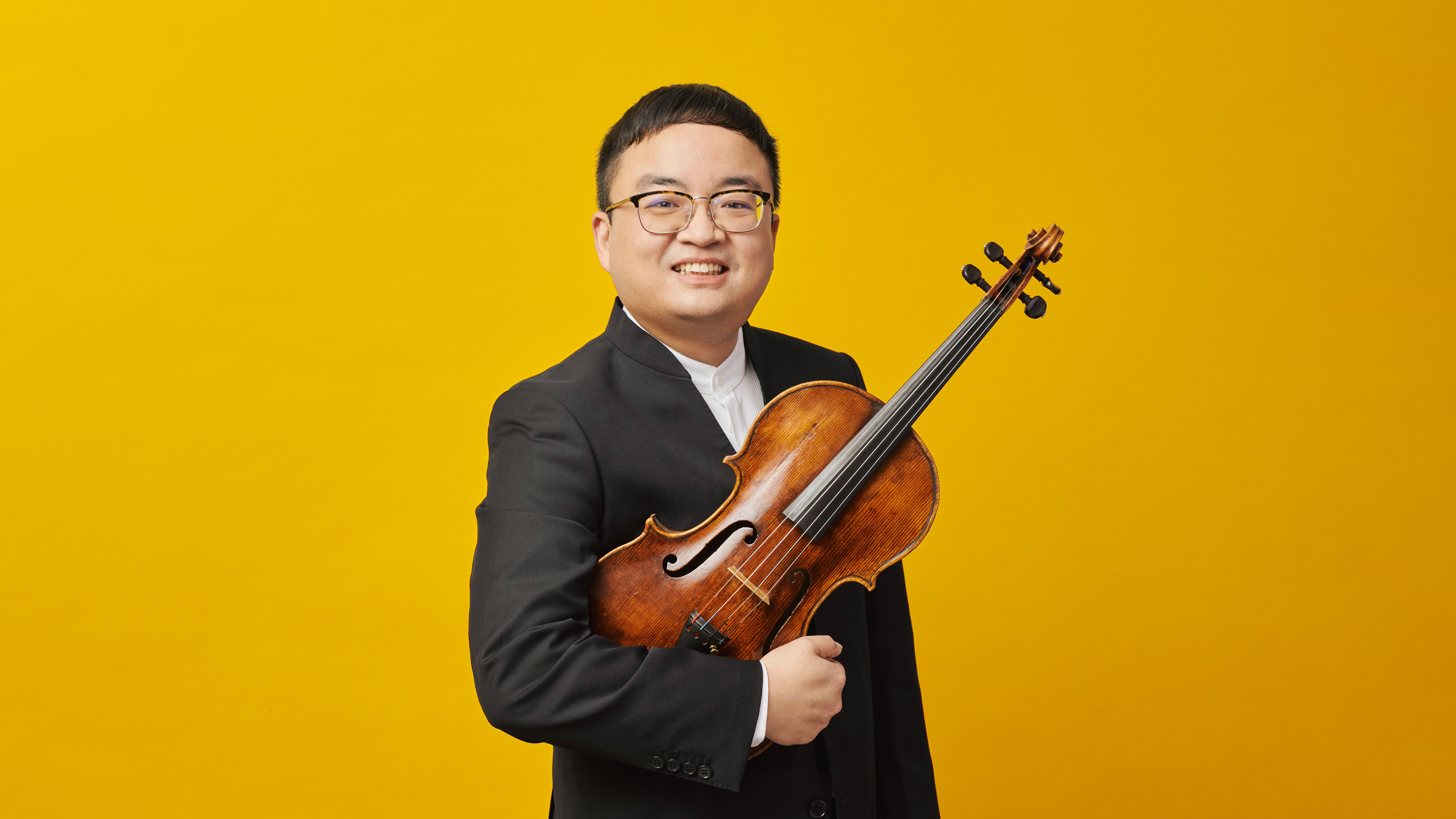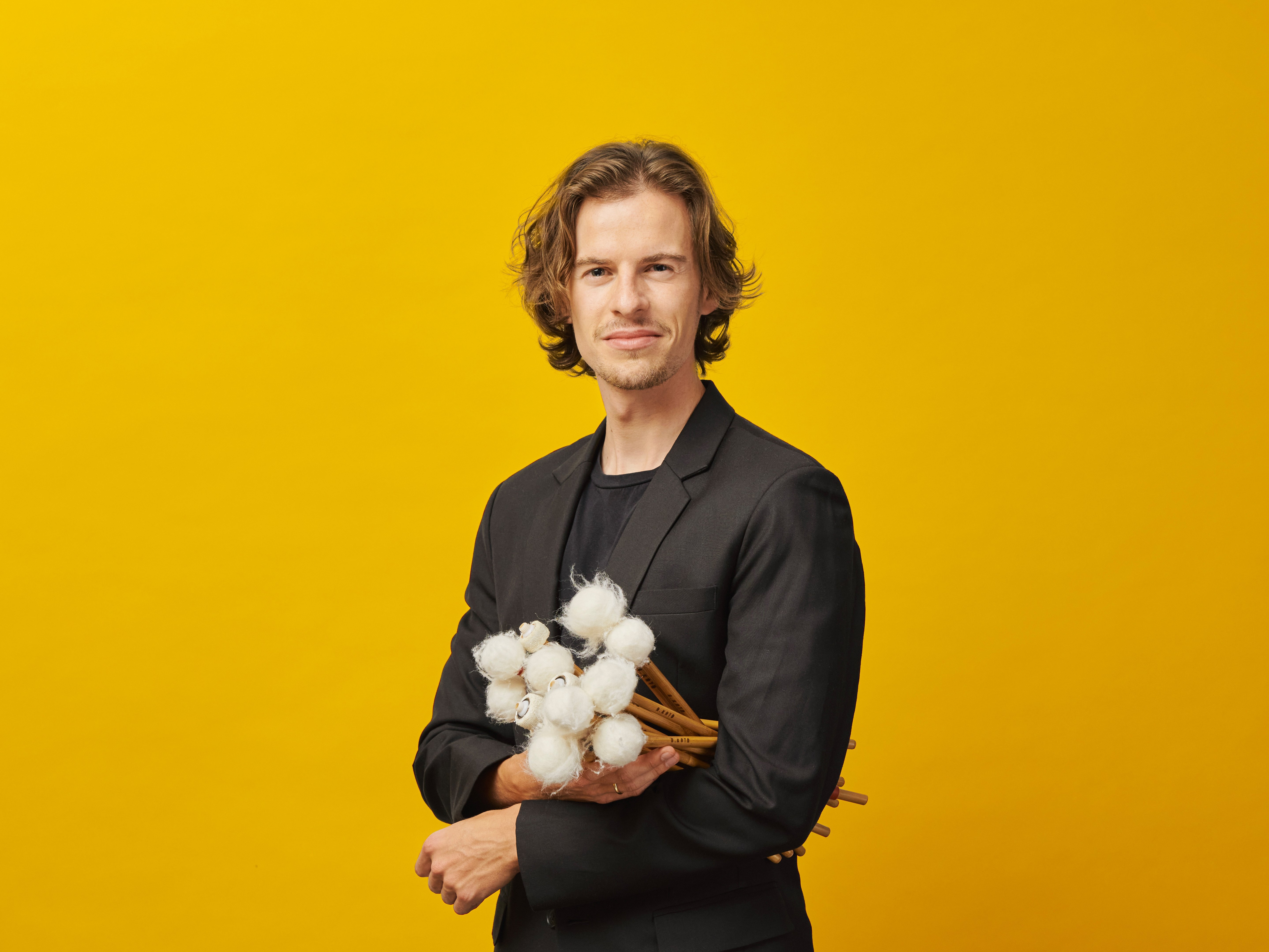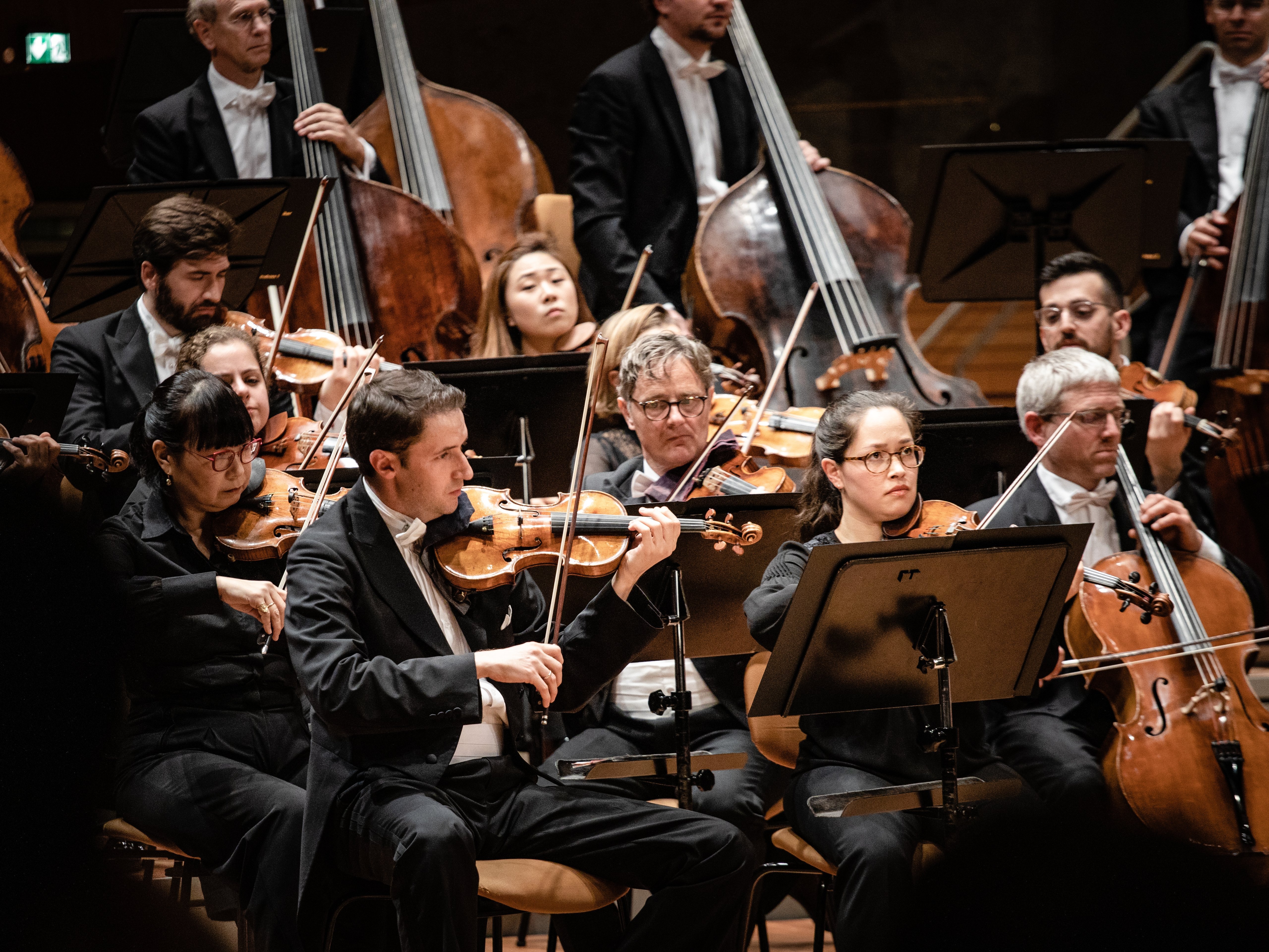
Diyang Mei first heard the news through WhatsApp messages from his colleagues: “Congratulations! You passed your probationary period!” The messages reached him when Mei, who has been principal violist of the Berliner Philharmoniker since October 2022, was busy rehearsing with the Simply Quartet in Vienna. “The rehearsals really helped me that day,” he remembers. “I knew that the orchestra would be voting about me, and I was a little nervous. It helped distract me.”
A dream comes true
For Mei, who was born in Hunan, China, it was the fulfilment of a childhood dream. As a ten-year-old, he had seen the Berliner Philharmoniker play Beethoven's Fifth under Herbert von Karajan for the first time on television, and was enthralled. He was studying at the Central Conservatory of Music in Beijing at the time, and had just switched from violin to viola. He told his mother: “I absolutely have to join this orchestra.”
In 2014, he came geographically closer to this goal when he moved to Germany to continue his studies – first at the University of Music and Theatre Munich under Hariolf Schlichtig, and later under Nobuko Imai at the Kronberg Academy. In addition to several other competition wins, the violist was awarded first prize at the ARD International Music Competition in 2018. The following year, Diyang Mei was appointed principal viola of the Munich Philharmonic before moving to the same position with the Berliner Philharmoniker.
From Hunan via Munich to Berlin
How did he feel about his start in this orchestra? “I was very impressed by the atmosphere right from the start: the openness and willingness of the musicians to work together, the transparency and the way they played as if it was chamber music.” He immediately felt welcome in the viola section. He values the frank and constructive exchange of opinions with the other members of the group, as well as the deep emotional connection that comes from playing together. “I only have to take the lead when a crucial passage comes up,” he says of his position as principal violist; “otherwise I feel like part of an equal group.”
Violists play an important part in the orchestra as a link between the high and low instruments, he says. “We always have to be flexible in how we adjust our sound, and that sharpens our ability to listen.” Passing the probationary period is just the beginning for Diyang Mei. “Working in this orchestra is an inspiration,” he explains. “I learn from my colleagues every day, and that means I can continue to develop as an artist.”

Welcome to the Berliner Philharmoniker!
We introduce you to Vincent Vogel, Tobias Reifland and Barbara Kehrig as new members of the orchestra.

Musicians
Brief portraits of all members of the Berliner Philharmoniker

Orchestra history
Discover more than 140 years of history of the Berliner Philharmoniker!